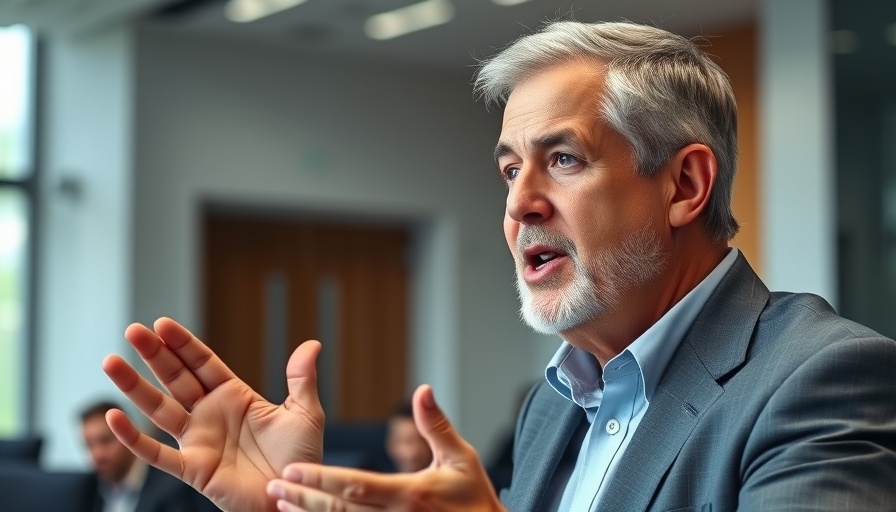
Understanding the Controversy: RFK Jr. vs. CDC on Autism
In a recent discussion that has caught significant public attention, Robert F. Kennedy Jr. and the Centers for Disease Control and Prevention (CDC) found themselves on opposing sides regarding a pivotal autism study. The CDC's findings indicate that there is no established link between vaccines and autism. However, Kennedy, known for his controversial views on vaccine safety, strongly disagrees, claiming that the study overlooks vital data that could show a connection. This debate not only ignites a conversation around vaccine safety but also highlights ongoing concerns about public health and parental choice.
The Vital Role of Community Health in Vaccine Discussions
This clash between prominent figures brings to light the importance of community health and wellness initiatives. Understanding the scientific basis of vaccine safety is essential for informed decision-making. Communities across the nation, including those in cities like San Antonio, are actively engaged in health and wellness events that help to educate the public about vaccines, autism, and the general importance of maintaining health literacy. These community efforts can greatly influence parental attitudes towards vaccinations and broader health practices.
Misconceptions About Vaccines and Autism
The narrative surrounding vaccines and autism is riddled with misunderstandings. Many hold onto a popular misconception that vaccines, particularly the MMR (measles, mumps, rubella) vaccine, directly cause autism. This belief continues to be propagated despite numerous studies debunking the myth. The CDC and other healthy lifestyle advocates emphasize the importance of correcting these misconceptions to ensure that families are making decisions based on factual information, not fear or misinformation.
A Broader Look: Effects of Misinformation on Health and Wellness
The effects of misinformation extend beyond the vaccine-autism debate and impact community wellness at all levels. Misinformation can lead to vaccine hesitancy, which consequently affects community immunity and increases the risk of outbreaks. Furthermore, it might set a dangerous precedent where other health and wellness products, such as nutritional supplements and alternative medicines, face skepticism despite their proven benefits. Advocacy for accurate health information is crucial in empowering communities to achieve optimal health and wellness.
Future Implications for Parental Choice and Public Health
As the discourse about vaccines continues, parents are faced with crucial choices impacting their children's health. The RFK Jr. versus CDC debate exemplifies a divide that can affect public health policies in the long run. How these discussions unfold could fundamentally shape legislative actions concerning childhood vaccinations and impact wider public health strategies across the United States. The need for transparent communication and educational outreach is more important than ever to bridge the gap between scientific views and parental concerns.
Taking Action: Engaging in Health and Wellness Conversations
It’s essential for families and communities to engage in open conversations about health and wellness, including vaccine safety. Attending community health and wellness events, participating in educational seminars, and consulting healthcare professionals can empower individuals with knowledge, enabling them to make better health choices.
In conclusion, as discussions around autism and vaccines continue to unfold, it is vital for communities to champion health literacy and maintain a dialogue that prioritizes factual information. By doing so, we not only combat misinformation but also ensure every individual has access to the tools necessary for managing their health effectively.
 Add Row
Add Row  Add
Add 




 Add Row
Add Row  Add
Add 


Write A Comment